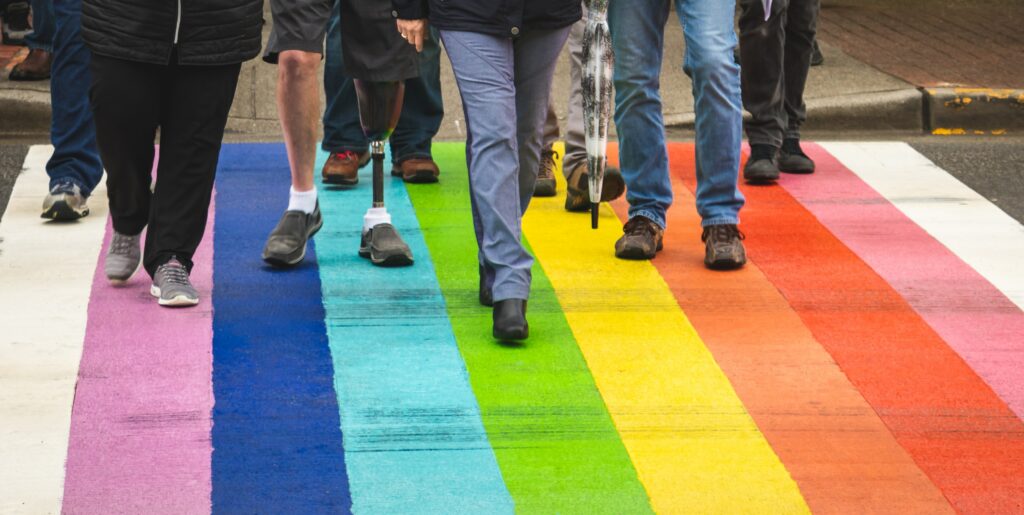
Diversity, equity and inclusion have become increasingly highlighted in recent years, as many marginalised groups push to remove barriers that exclude them. Language is a quintessential focus of this movement - when used correctly, it has the powerful capacity to break down barriers and build relationships. But when used poorly, it marginalises individuals and impacts their ability to belong. Inclusive language and terminology acknowledges diversities and differences, conveys respect to all individuals and promotes equal opportunities.
Naturally, the use of inclusive terminology is important for businesses. In a survey from Wunderman Thompson, 75% of respondents believed that companies and brands play a major role in solving societal challenges such as equality and social justice. With this in mind, there is a strong belief that businesses have a stake in influencing social norms and should be proactive in doing so. Below we’ve compiled a list of inclusive terminology to incorporate into your branding communication, internal workplace material, and overall daily life.
Belonging Culture
Generating a company culture where individuals can share in a sense of belonging through inclusive practices, regardless of their identity.
Code Switching
Changing the way you communicate and express yourself based on the different parts of your identity and how they are represented in the group you’re with.
Democratizing Desire
Moving away from an aspirational figure that is limited to a select group of people, and instead rejecting stereotypical beauty standards for a beauty standard that extends to all people, especially marginalised groups.
Digital Sanctuaries
A digital safe space where marginalised individuals are free from harassment and hate speech, and can freely express themselves and their opinions online.
Employee Equity
Acknowledging inequalities in the workplace and establishing initiatives that aim to rectify these inequalities in order to maintain employee happiness.
Intersectional
Acknowledging that there are a multiplicity of factors that can impact a person’s identity such as gender, race and age, and that these can all differently influence opportunities and experience.
Inclusivepreneurs
Entrepreneurs from marginalised and unseen communities that develop products and services to address the unmet needs of their communities.
Mass Inclusive Design
Mass market products that are designed to be both accessible and inclusive to a greater audience.
Meta-Inclusion
Keeping inclusivity and accessibility in mind when designing the metaverse so that these spaces don’t become platforms of exclusion.
Microaggression
Casual, almost unnoticeable insulting remarks and degradation towards marginalised groups.
Neurodiversity
A term used to express the idea that individuals with ADHD and autism have variations in brain processing as a result of a natural variation in the human genome.
Revolutionary Rest
A ‘movement’ amongst marginalised communities promoting rest and recovery in response to the experiences of trauma, stress and discrimination they experience.
The Wokelash
Hateful rhetoric and hate crimes against marginalised groups as a response to the gains and steps forward made by these marginalised groups.
Tone Policing
Responding to an individual expressing a concern through focusing on their tone of voice or mannerism as opposed to their actual problem.
Even the most mindful individual might hold unconscious bias as a result of their social upbringing. By understanding and adopting these inclusive terminologies into your daily life in a way that is mindful and aware, it’ll trickle down into the language your brand uses and create a more welcoming environment for your own team as well as your target audience.
The above terminologies were taken from Wunderman Thompson’s Inclusion’s Next Wave report which you can see here: https://www.wundermanthompson.com/insight/inclusions-next-wave
